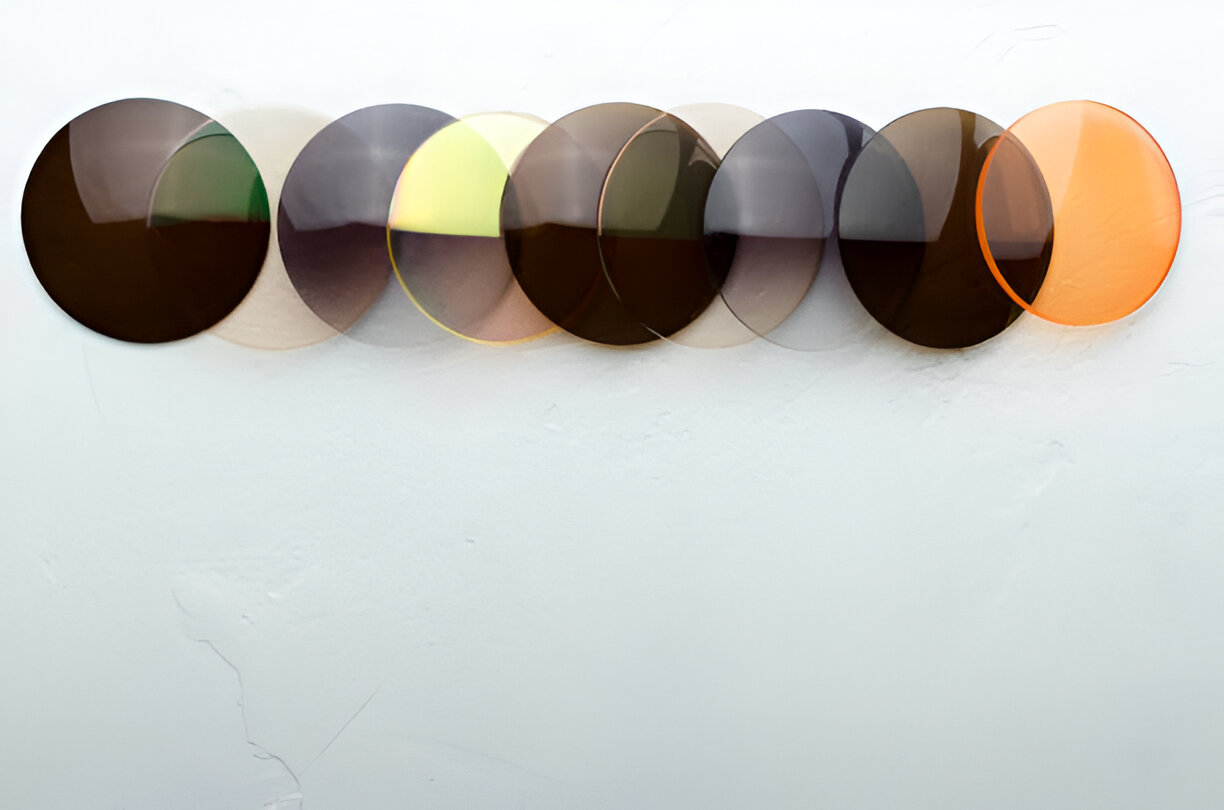
Blog
Do Employers Have To Pay For Prescription Safety Glasses USA
There may be formalities you need to finish, whether you are starting a new career or assuming a new responsibility inside your organization. Your company can insist that you buy safety glasses if, for example, your new position demands you to operate in hazardous or demanding environments.
This is a wise decision. Working in a hazardous setting where sand, dust, debris, or wind is blowing can severely impair your vision. It could make it difficult for you to see what's right in the path of you. This can raise major safety issues even if it just happens for a short period. Furthermore, prescription safety glasses, particularly those the American National Standards has certified as safe that Institute ("ANSI"), can be used in the case of high-impact. They won't break completely, but they will withstand some of the worst situations.
Prescription safety glasses can undoubtedly be an essential tool for your new position. However, you might have to consider how you're going to shell out for these lenses when you go to purchase a prescription pair of safety glasses. Although you may always pay for glasses with prescription lenses out of pocket, you might be asking if your employer ought to or even needs to cover the cost.
In this post, we shall delve more into this query. However, the swift response isn't encouraging. With very few exceptions, it is highly unlikely that your company will cover the cost of safety prescription glasses.
Employers are required by OSHA standard 1910.132 to provide face and eye protection. Everywhere it is required for usage, personal protective equipment must be supplied, used, and kept hygienically. The employer is required to cover the cost of and supply eye protection, just like with other PPE.
Prescription safety glasses are the lone exception, however, this is only true if you let the worker use them outside of the office. It follows that if an employee carries these with them from job to job, effectively using them as personal safety glasses in every situation, then it makes no sense for companies to pay.
In any case, PPE cannot be provided by or paid for by employers; employees cannot be forced to do so. However, if eye protection is required to perform the job safely, they may make it a requirement for workers to put on the best safety glasses or other eye protection.
OSHA's Role
We must first take some time to discuss one of the US Department of Labor's most frequently cited agencies before we can begin to address this subject. The Occupational Safety and Health Administration, or "OSHA," is that organization. One well-known organization that enforces workplace health and safety laws is OSHA. It accomplishes this by creating guidelines that employers have to abide by. Employers risk fines and other penalties if they don't adhere to these guidelines.
For personal protective equipment, or "PPE," OSHA has set criteria. Equipment worn to reduce exposure to risks that could result in major occupational injuries is known as personal protective equipment or PPE. Chemicals may cause harm from radioactive, physical, electrical, or other factors. As a result, PPE may consist of items like coveralls, hard helmets, gloves, earplugs, and specific kinds of glasses.
You must read “What is OSHA?”
Employer Support for Prescription Safety Glasses
In the end, businesses might not be obligated to pay for Rx safety glasses under OSHA regulations.
1- The unfavorable news. There are many payment exclusions under the OSHA rule, even though companies are still required to cover the cost of their employees' PPE to comply with OSHA regulations. Prescription Transition safety glasses are one of those exclusions. OSHA notes that in certain circumstances, such as when non-specialty prescription safety glasses are provided and the business permits these items to be used off the job site, employers "do not require reimbursement for certain PPE."
2- According to OSHA, this kind of equipment is "very personal, frequently utilized outside of the work environment, and that is frequently removed by employees from job sites," OSHA includes "regular" safety glasses with readers or prescription lenses in its ban on non-specialty rx safety eyewear.
Although this exception can't be the greatest regulation for you as an employee, you can understand why OSHA made it. Employers would be paying for employees' safety eyewear that is frequently used outside of the office if this exception didn't exist. The initial employer would not be compensated even if the worker accepted a position with a rival company.
3- OSHA pointed to a clause that permits employers to offer various forms of eye protection rather than requiring them to foot the bill for their workers' prescription safety glasses. Safety Goggles that slide over the wearer's prescription glasses are one type of alternate protection. The company would meet the worker halfway by offering some additional protection rather than a brand-new set of prescription safety eyewear. This would be the general principle behind the half-measure.
4- That being said, there is some possibly good news in all of this conversation. One of the main points of the OSHA regulation is that since employees would be wearing these glasses both at work and at home, employer-paid rx safety glasses might be excessive. However, what if the company mandated that the safety glasses prescription that were prescribed be kept on corporate property? This kind of arrangement would necessitate the employer to cover the cost of these new prescription safety glasses, according to the evidence. Of course, the employer is under no obligation to implement this policy.
5- Instead of OSHA compelling the employer to buy these glasses, it would allow the choice. After that, you can envision a scenario in which a company wants to introduce this rule as an additional perk for staff members. Put another way, the company may be able to draw in new talent by offering these rx safety glasses as an extra benefit to both present and prospective workers. Even if the glasses might not be taken out of the office, they can improve workers' enjoyment of their jobs.
Employers are also required to cover the cost of non-standard or "specialty" items. Prescription eyewear inserts for full-facepiece masks are one example of these devices. It would be challenging for workers to utilize this clause to take advantage of the broad exemption for company funding to buy prescription safety glasses online. However, this clause is present, and depending on your company and the purpose of your employment, you might find it useful.
Similarly, non-speciality Rx safety glasses will not be covered by your employer. Even if OSHA's exception seems unreasonable, it nonetheless exists. Should you still believe that your employer should pay for your safety glasses prescription, you might want to continue your argument after reading this. You can either talk to a labor law expert lawyer or conduct some more research.
What Do the Imprints Z87 and ANSI on Safety Glasses Mean?
The American National Standards Institute is ANSI. It establishes the minimum standards for strength and endurance required to achieve shock resistance requirements and obtain certification for ANSI Z87.1 safety glass lenses. Prescription glasses must possess an ANSI impact rating of Z87-2+ for workers who handle dust, sand, big chips, or flying pieces. Z87+ is required for all frames except Plano frames.
All that the Z87 indicates is that the eyewear satisfies ANSI safety requirements. It indicates that the protective glasses have completed many rigorous tests to ascertain their level of durability and impact resistance.
If the safety glasses are labeled "ANSI Z87.1," for instance, it indicates that the ANSI evaluated them and found that they function correctly in a high mass test. This indicates that the glasses did not break or shatter when testers dropped a 500-gram pointed weight onto them from five feet above.
Read out “What Does ANSI Z87.1 Certified Mean?”
What Kind of Lens Technology Is Appropriate for Prescription Safety Glasses?
When buying your prescription glasses, you have a lot of options when it comes to lens technologies. Think about the lens coating first. Coatings enhance the efficiency of your lenses. Options for common lens coatings include anti-fog and scratch resistance.
You should probably pay close attention to lens tints if your line of work involves exposure to high levels of optical radiation. It's possible to make lights appear less powerful by applying a light layer of grey or green. Additionally, you can select shades that will shield you from UV rays. Check on some different sorts of tints to see which one works best for you; there are a lot of alternatives available.
Which Comfort and Style Options Are Available for Prescription Safety Glasses?
Put comfort first above anything else. Remember that you will want to wear glasses that are both light and strong. Wearing glasses for eight hours or more a day means you need to choose a pair that fits well on the nasal bridge, rests properly in the center of your eyes, and doesn't put too much pressure on your temples while lying on your ears.
In case you value design options, a broad selection of square, round, and rectangular frames in various sizes can be found. To find the perfect frames for your needs, style, and personality, wire-rimmed, thick, and mid-size frames are available.
Last Remarks
Even while your company might not be forced to buy your next rx safety glasses, it still should make sure that you are adequately protected when working. You might receive safety goggles to wear over your prescription glasses if you use them. It might not be quite comfortable, but your company is probably following OSHA regulations.
But, despite everything, you can always get customized prescription safety glasses. These glasses can offer adequate protection for the whole of your life, not only when you're at work but for day-to-day activities. Rx safety glasses can be quite helpful if you work on tasks that include flying debris or if you just like extreme sports.
We are providing such an enormous selection of eye protection at SEG because this is the cheapest place to buy z87 safety prescription glasses. We are pleased to assist you in finding prescription safety glasses that are approved by the ANSI or the best eye protection that you can wear while participating in your preferred sport.




Leave your comment